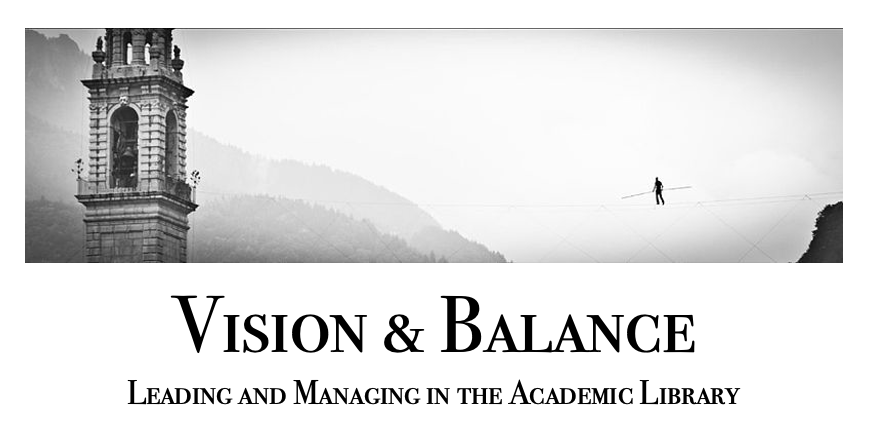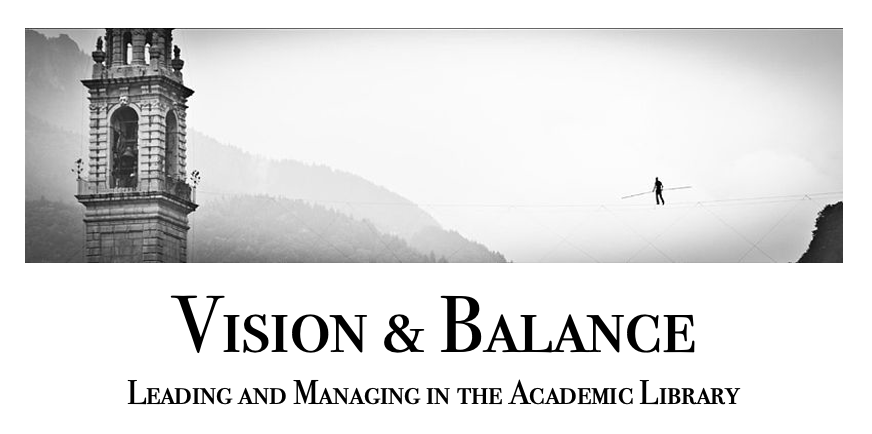Objection to Change Isn’t Always Fear of Change
When leaders encounter resistance to change, it's easy to dismiss it as a fear response. That's a mistake.

One of the most frustrating things for a leader is when it’s clear (to the leader) that some kind of organizational change is necessary, but people in the organization resist accepting and implementing it. Such resistance can take many forms (we’ll talk more about those in future articles), but today I want to push back on a sentiment that I hear expressed commonly by leaders facing this frustration: “The problem with these people is they’re afraid of change.
Now, to be clear: sometimes people really are afraid of change. This can be especially true in the library profession, which – let’s just say it out loud – has not tended historically to self-select for people who want a constantly changing job. In fact, libraries have not, historically, been rewarded for or even been expected to be places of constant change and nimble responsiveness. On the contrary: historically, the library has been expected to resist change, to be consistent and constant and reliable, and the profession has, unsurprisingly enough, tended to attract people for whom the challenges of consistency and constancy and reliability are interesting and rewarding ones to meet.
And yet, the world in which libraries do their work has been changing rapidly in recent decades, and it has been necessary for libraries to change as well. We’ve done so with varying degrees of both success and grace
In this context, the leader who tries to introduce significant change in his library is likely to encounter at least some resistance. And when the resistance arises, that leader will be tempted to dismiss it as arising from a fear of change itself, or an objection to change in principle.
Resistance to change may arise from factors other than fear of change itself – and those factors may be critically important to consider
The wise leader will resist this temptation. Not because there aren’t library employees who fear or hate change itself – of course there are – but because the resistance may well arise from other factors, and it may be urgently important to consider those factors. Bypassing that consideration by dismissing the resistance as mere reaction might lead you to overlook substantive issues that need your attention and could lead to serious problems later. In other words, an objection to the proposed change may not reflect a fear of change itself, and it may not arise from “fear” at all; it may reflect only an objection to the specific change in question.
For example, imagine this scenario:
The associate dean over technical services has read an article arguing in favor of eliminating journal issue check-in, and found its arguments compelling. She calls in her serials manager and introduces those arguments to him, laying out the reasons why she thinks journal check-in can be discontinued and the benefits that would accrue from doing so. From the very beginning of the conversation, she can see him becoming agitated – he obviously hates this idea. When she asks for his counsel, he responds with a litany of reasons why the library needs to continue checking in journal issues. Much (though not all) of what her manager shares are arguments that were anticipated and addressed in the article she read, and she’s ready with responses, but the responses do nothing to assuage his concern; he’s just as opposed at the end of the conversation as he was before she started explaining her reasoning, in part because he brought up some issues for which she did not have ready responses. She ends the meeting by asking him to give it some more thought, and promising to meet again in a few days to discuss the matter further.
The associate dean goes away from the conversation convinced that her manager is not interested in listening to reason; he simply fears change and will oppose it no matter the merits of the case.
The manage goes away from the conversation convinced that the leader is not interested in hearing any arguments that don’t support a conclusion she reached long before talking to anyone with direct understanding of the processes she wants to change.
Who is right?
Obviously, in a similar real-world scenario both sides – both of whom are in positions of leadership – could be at least partially right. But today we’ll focus on how the associate dean can most fruitfully and wisely respond to the manager’s concerns. Dismissing them as mere reaction would be a significant mistake; she would not be wise to assume that the principles she learned from an article on eliminating check-in were fully sufficient to analyze and dictate change in a department in which she does not work. Nor would it be wise to assume that the manager’s response arises from an aversion to change generally; he might hate change and be reacting on that basis, but he also might genuinely see problems with her proposed course of action that she does not see.
A wiser approach would be to take the time necessary to not only to go through all the reasons she has for believing that eliminating check-in would create a net benefit to the library and its constituency, but also to listen carefully both to the manager’s responses to those arguments and to the objections he raises that she had not considered previously. If she listens carefully, respectfully, and thoughtfully, she may still come away from the conversation convinced that eliminating check-in is the right thing to do. She may also come away convinced that it’s actually a bad idea, or at least a bad idea in the current moment. She may also – and this is perhaps the most likely outcome – conclude that further discussion and analysis are needed before making a final decision.
Why are leaders tempted to dismiss resistance to change as a fear of change? Three reasons:
- This response locates the problem in someone other than the leader, and in a case of conflict it’s always tempting to assume that it’s the other person who has the problem.
- It locates the problem in something other than the leader’s plan, and creates a justification for pushing forward with the plan despite the resistance.
- By attributing resistance to “fear,” the leader is able to treat the resistance as irrational without having to analyze critically the source(s) of the resistance.
There’s a fundamental principle at work here: reality exists outside of our individual preferences, expectations, and agendas, and reality – eventually – always wins. Any habit of mind that allows us to avoid or procrastinate the encounter with external reality is likely to serve us (and our organizations) badly. Dismissing resistance to change as fear of change itself may or may not reflect reality – and the reality matters very much.
Takeaways and Action Items
- It’s never smart to assume you know what motivates other people. Always err on the side of asking questions and listening carefully before proceeding on the assumption that you do.
- Resistance is always irritating. Irritation is almost never a worthwhile basis for responding to people, or for decision-making. The next time you are faced with an irritating reaction from someone you work with, what steps will you take in your own mind to look past the irritation and make a wise next move?
- What changes would you like to see in your organization? What reactions do you expect from your colleagues? What steps will you take to analyze those reactions and let them inform your decisions?
